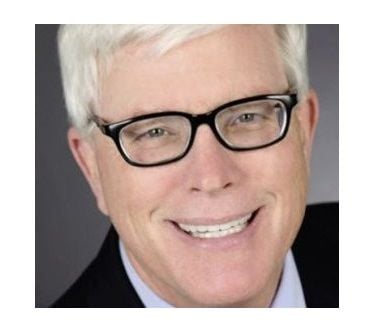
A chief justice is first among equals, but only one of nine votes on the Supreme Court. His influence is often wrongly assumed to be far greater than it is. But there is no denying that any tenure in that office, especially one as long as Burger's, is going to impact U.S. history in ways both obvious and less apparent but deeply profound.
The Nixon Foundation (of which I will be president and chief executive as of July 1) has now published a marvelous review of Burger's legacy, by Jeffrey B. Morris. Morris served on Burger's staff for five years and has taught constitutional law for six times as long, presently as a professor at Touro Law Center. A single column of 700 or so words can't cover decades of work at the highest levels of the federal judiciary, but the key point is that the breadth and depth of Burger's impact on the legal structure of the United States is only beginning to be understood and appreciated.
The first of four justices appointed by President Richard Nixon, Burger guided the "least dangerous" branch through a particularly troubled era in America and especially in its courts. Under Burger's predecessor, Earl Warren, the high court had finally enforced the 14th Amendment's long delayed promises of racial equality, and brought focus and reform to the criminal-justice system.
Yet the Warren Court would also launch a "rights revolution" that began with penumbras and emanations and ended in confusion and contention. Burger's era coincided with a cabining of the courts' collective power but not a retreat from it. Turning an aircraft carrier takes time.
Turning the Supreme Court by whatever degree takes even longer, and a steady, patient, resolute hand on the wheel is necessary if any turn is to be achieved.
A justice and particularly a chief justice's influence extends for generations in two ways: their "coaching tree" of former law clerks and staffers and their opinions. Burger's tree is extensive given his tenure and includes many stars of bench, bar and classroom. Then they go on to add to the tree: For example, former federal circuit judge Michael Luttig, a Burger protege, has himself raised up many clerks now sitting in positions of authority or on the bench. They are part of Burger's tree, too.
But still we tend to focus on particular opinions, though many are unfamiliar to the vast majority of Americans. One example cited by Morris: Immigration and Naturalization Service v. Chadha, which invalidated the one-house legislative veto. In doing so, "the Court overturned more congressional enactments than it had in its whole history." It's a good guess that Chanda is not much discussed outside of law schools, but it changed fundamentally the direction of the American government's evolution. Burger also authored the court's ruling in Schick v. Reed, "the leading case on the pardon power." And of course, Morris writes, the decision "for which Chief Justice Burger will long be remembered" was the key case of the Watergate era: U.S. v. Nixon.
As for relationships with colleagues, Morris writes that Burger was "limited in leading by a temperament more pugnacious than harmonizing, legal talents more executive than craftsman-like. He clearly was not as popular with his colleagues as predecessors John Marshall, Melville Weston Fuller, William Howard Taft and Earl Warren were said to have been."
"Some of his colleagues found him vain and manipulative," Morris concludes. "On the other hand, Burger was less appreciated by his colleagues than he should have been for his intense interest in the facilities and personnel available to the justices for their work."
Burger served for 17 years as the head of the judicial branch before being replaced by William Rehnquist. (Fans of political trivia will be interested to know Burger's retirement was the result of the careful work of Washington "wise man" Fred F. Fielding, who, with a big assist from then-Attorney General Edwin Meese III, was also behind Rehnquist's elevation to chief justice and Antonin Scalia's nomination to the Supreme Court.)
All administrative jobs are almost by definition going to be thankless, especially when attention focuses on substantive rulings on at least an annual basis. But opining this week and next on the court's direction, or the views or importance of one or another of the justices, should be restrained by the very real, very obvious limits of the visibility of our horizon.
A justice's career rarely turns out as one would have predicted, and many of the big cases of every June fade in importance, while the direction of the court is the key. Morris's must-read summary proves that Burger's navigation was equal to the difficulty of the times in which he captained the court.
Every weekday JewishWorldReview.com publishes what many in the media and Washington consider "must-reading". Sign up for the daily JWR update. It's free. Just click here.
(COMMENT, BELOW)


 Contact The Editor
Contact The Editor
 Articles By This Author
Articles By This Author